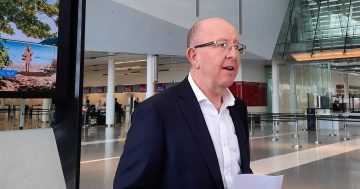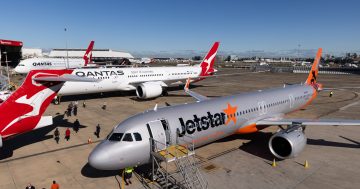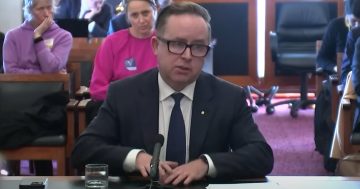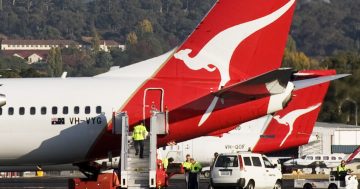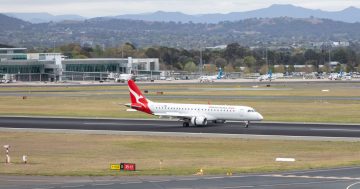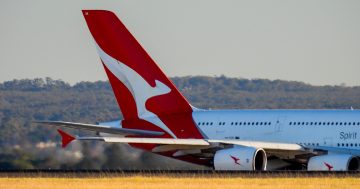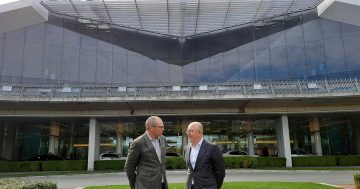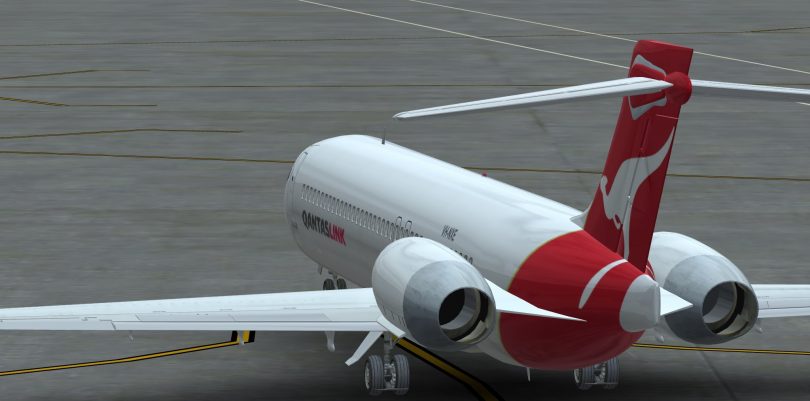
Airlines like Qantas want Canberra Airport to drop its passenger fees. Photo: File.
If the Productivity Commission wasn’t thinking about the economic regulation of airports yesterday, they are now after the bosses of Qantas and Virgin took a big swing at airports at the National Press Club on Wednesday.
Qantas and Virgin chief executives Alan Joyce and Paul Scurrah say the airports are forcing up the cost of flying through excessive fees and charges.
The Productivity Commission (PC) released its draft findings into the economic regulation of airports earlier this year, recommending no changes to the current process of airlines and airports negotiating their fees and charges, and settling any grievances between themselves. The airlines are less than happy.
The final report is expected next month, and that’s probably why Joyce and Scurrah were putting their case to the nation’s media.
Joyce took aim at Canberra Airport and didn’t miss, dredging up the claim Canberra Airport held a Qantas plane to “ransom” unless an $18,000 fee was paid immediately by credit card. Joyce reckons Canberra Airport fees of $25* can make a route unviable.
In rejecting this assertion, Canberra Airport issued a statement saying discount carrier Tigerair makes Canberra Airport work and has actually expanded its services in Canberra.
The airport says the airlines’ attack was disappointing and unhelpful, and that in recent years the airport had brought more carriers to Canberra including Singapore Airlines, Qatar, Fly Pelican and Tiger Air, and is currently in good faith negotiations with Jetstar.
Draft recommendations earlier this year indicate the PC is happy with the status quo. According to Canberra Airport, the PC has examined the airlines’ claims and concluded that there was no evidence of monopoly profits, misuse of market power or the need for arbitration.
The airlines, however, are unhappy with the report and have tried to discredit the analysis.
The airlines want airports to drop passenger fees and for the Federal Government to impose more regulation to keep the airport monopoly in check. The PC finalised its report in June and the government’s response is expected in October.
The Press Club speeches were an attempt to seize the moment and change the narrative. Aviation is a cut-throat industry. Joyce and Scurrah are aiming for a better deal for their shareholders and staff.
The airlines are taking aim at the 30-40 per cent ‘super profit’ margins enjoyed by the airports, and are certainly much higher than the single-digit margins of airlines. However, Australian airport operators are quick to compare their margins with airport operators around the world, which operate in a similar range.
Perhaps the truth – and reconciliation – is somewhere in the middle.
In its submission to the Productivity Commission, Canberra Airport says its 2,189 indoor car parks and 890 outdoor car parks at the terminal provide the cheapest short-term car parking rates of any capital city airport in Australia, and long-term car parking rates are equally competitive.
Canberra Airport doesn’t see any point in getting into another public slanging match with Qantas, which is more than the country’s biggest airline. It’s also an important tenant. Joyce’s attack on Wednesday apparently was quite unexpected and caught the airport off guard.
On the day-to-day operations in Canberra, the foot soldiers on the ground have a good relationship. Airline and airport staff have to get along otherwise the operations would not be functional.
The language from Virgin and Qantas was certainly strong and emotive, but the target was less likely the airport operators, and more likely the legislators on whose response both sides are eagerly waiting.
*Correction: An earlier posting of this article said “Joyce reckons Canberra Airport fees of $50 can make a route unviable”. Region Media has been informed the correct figure is $25.












